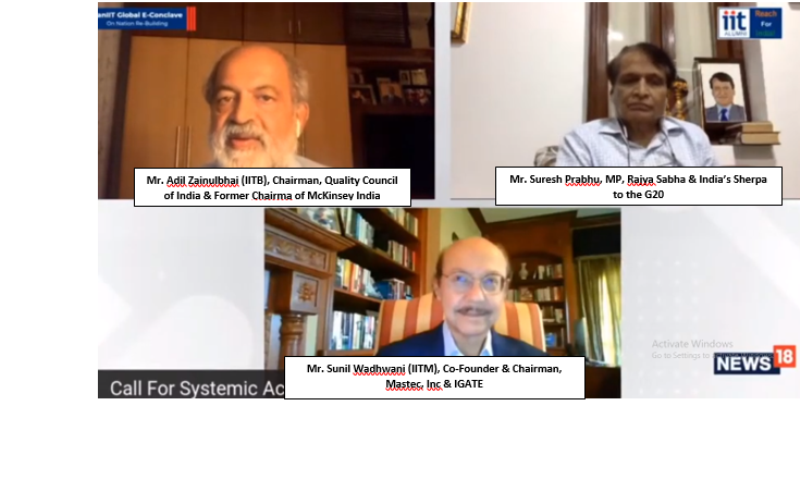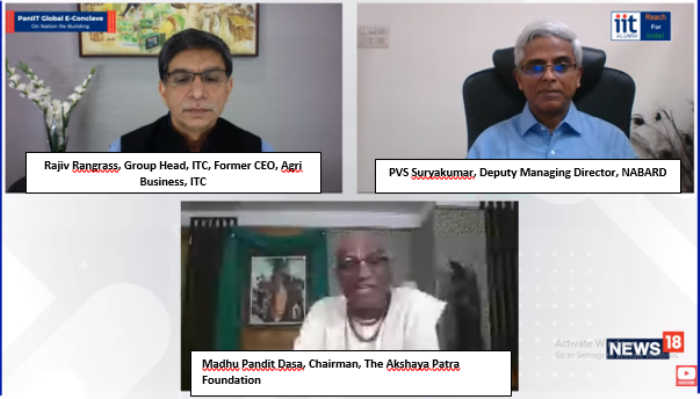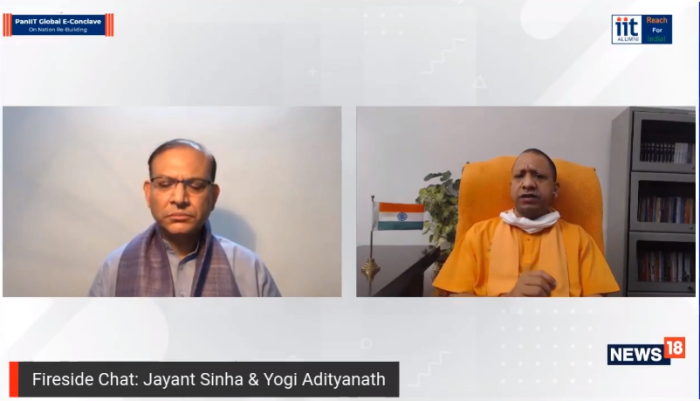
Pan-IIT Global E-conclave discusses ways to rebuild Indian states in the face of the spreading pandemic
New Delhi/IBNS: The three week Pan-IIT Global E-conclave concluded with the focus on re-building states and re-imagining agriculture, food security, MSMEs and livelihood to meet the challenges thrown at the world by the ongoing COVID-19 pandemic.
The first session on ‘Rebuilding States’ featured Lok Sabha MP Jayant Sinha in conversation with Uttar Pradesh Chief Minister Yogi Adityanath sharing lessons learned from the pandemic and the steps taken by the government to battle it.
“In UP, which has a population of approximately 24 crores, we came across multiple challenges while fighting against the virus outbreak but we managed to contain it during the four phases of lockdown,” said CM Yogi Adityanath.
The second part of the session featured Rajiv C. Lochan, an IIT Madras Alumni and CEO of Hindu Group’s publishing vertical in conversation with Jayant Sinha discussing the systematic responses for structural changes.

The panel on ‘Re-imagining Agriculture and Food Security’ was moderated by IIT Kanpur alumni Sanjeev Rangrass, the Group Head designate of ITC , which also featured PVS Suryakumar, the Deputy Managing Director of NABARD and Madhu Pandit Dasa, the chairman of The Akshaya Patra Foundation.
They discussed the agricultural reforms, their impact on rebuilding agriculture and benefits to the farmers apart from driving food security and nutrition during these difficult times.
On the final day of the conclave, Union Minister of MSMEs, Road Transport and Highways, Nitin Gadkari and Grameen Bank founder Prof Muhammad Yunus was in conversation with Mindworks CEO R. Gopalakrishnan, who is also an IIT Kharagpur alumnus.

The trio deliberated on the strategies to revitalise MSMEs and the Indian economy as the livelihoods of 69 per cent of the country’s working population are based on this sector.
Said Prof. Muhammad Yunus, “It is surprising to see how the poor in our country are not considered creditworthy by the banks. I would say it’s the other way round. The banks have not designed something for them.”
Prof Yunus said he believes that banks have to be people-worthy in order to do business with them.
According to Nitin Gadkari, Union Minister for MSME, Road Transport & Highways, said, “India’s most important requirement is to finance poor people and create employment potential. But the problem is for the people who are socially, economically and educationally backward, there is no availability of microfinance and that is exactly the need of the hour.”
The ‘Re-building Industry’ session featuring Adil Zainulbhai, the Chairman of Quality Council of India, India’s Sherpa to G-20 Suresh Prabhu and Sunil Wadhwani, the Co-founder & Chairman of Mastech, Inc. and IGATE discussed on how the Union government can work towards turning crisis into opportunities.
Support Our Journalism
We cannot do without you.. your contribution supports unbiased journalism
IBNS is not driven by any ism- not wokeism, not racism, not skewed secularism, not hyper right-wing or left liberal ideals, nor by any hardline religious beliefs or hyper nationalism. We want to serve you good old objective news, as they are. We do not judge or preach. We let people decide for themselves. We only try to present factual and well-sourced news.







